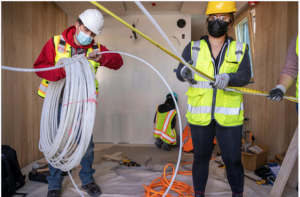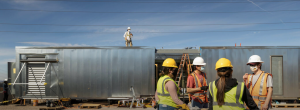- Home
- About
- Benefits & Services
- State Veterans Homes
- Nevada Veterans Memorial Cemeteries
- Community
- News
- Suicide Prevention
- Opioid Prevention
- Donate
- Fallen Heroes
- Nevada’s Veterans Memorials
- Calendar/Events
- Nevada Transition Assistance Program (NVTAP)


By: Chuck N. Baker
(Las Vegas) — UNLV has consistently been named one the nation’s best universities for veterans by Military Times magazine. The publication surveys and researches hundreds of colleges and existing federal data to evaluate universities on culture, academic quality and outcomes, policies, student support and costs, and financial aid.
“This ‘Best for Vets’ rating is the result of many years of UNLV support, community involvement, and the relentless effort of our staff, peer team, and campus collaborations,” said Ross D. Bryant, director of UNLV’s Military & Veteran Services Center and a retired U.S. Army officer. “Supported by this unified community effort, our staff welcomes these heroes home and helps get them settled, VA certified, and focused on their academic and career goals. I predict even greater Rebel Vet victories on the horizon.”
UNLV has more than 1,850 active-duty, reserve or veteran military students on campus. Most have received tuition benefits through the Post 9/11 G.I. Bill. From tuition assistance and campus training to on-site Veterans Administration support and specialized recruitment, UNLV’s Bryant continually focuses his department on enhancing its services for student veterans and active-duty personnel. This includes the Peer Advising for Veterans Education (PAVE) program, which provides support to help student veterans navigate challenges on and off campus.
Now, a new honor will soon provide an additional resource for veterans on the campus. The U.S. Department of Energy’s Solar Decathlon competition challenges collegiate teams around the globe to design and build full-size, solar-powered houses that combine market potential and design excellence with smart energy production and maximum efficiency.
Despite competition delays and other obstacles associated with the COVID-19 pandemic, UNLV’s entry —Mojave Bloom, which was designed as a place of healing and respite for military veterans suffering the adverse effects of wartime trauma — performed well in multiple categories. Team Las Vegas took home first-place wins in the operations and presentation contests, as well as placed second out of nine teams in the innovation and energy performance categories and placed third overall during the students’ third showdown in the international Solar Decathlon homebuilding contest.
Eric Weber, UNLV architecture professor and team faculty advisors said, “Winning third in the world is a testament to the tenacious mettle of the dozens of students who dedicated so many hours to this project while balancing school, work, and family responsibilities amidst the coronavirus pandemic.”
Mojave Bloom will serve as a nurturing shelter for returning military veterans who might be suffering from post-traumatic stress disorder and traumatic brain injuries. Weber is a Marine Corp veteran and served in Desert Storm. Several members of the architecture team served in the U.S. Army and U.S. Air Force. During the course of 32 months, they were a part of roughly 50 UNLV students from a variety of academic backgrounds including architecture, engineering, and psychology, who designed, planned, and built the 628-square-foot home.
Veterans will find that the project’s layout incorporated prospect-refuge theory, which lowers stress by allowing one to see throughout the space and make the resident feel protected via gates and other elements that let the occupants close off spaces when needed. Design elements include windows and skylights to combat feelings of entrapment by providing unobstructed views and allow natural light to aid sleep rhythms. Gates that could be closed off to protect the inhabitant are included in the design. Mojave Bloom also features solar panels, radiant flooring, a thermal solar collector, and a highly sophisticated fresh air system that helps regulate oxygen, carbon dioxide, and humidity levels.
Through a partnership with the City of Las Vegas, Mojave Bloom will be displayed at the downtown Las Vegas Healing Garden, where it will be used as a break room for employees and for special events. The home, which will continue to be monitored by UNLV students for sustainability performance research, will also be available for public tours.
# # #